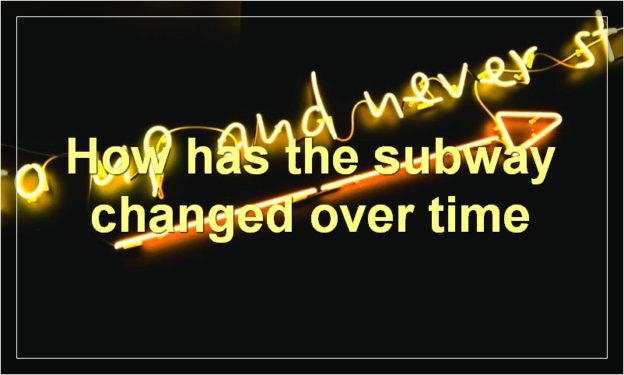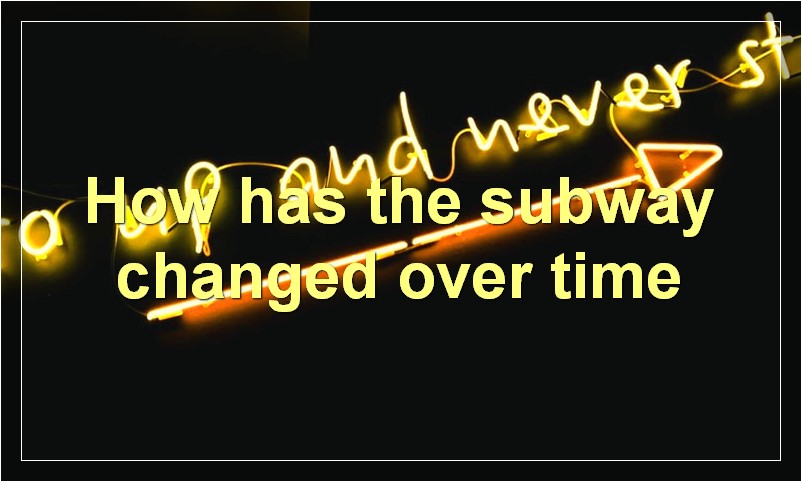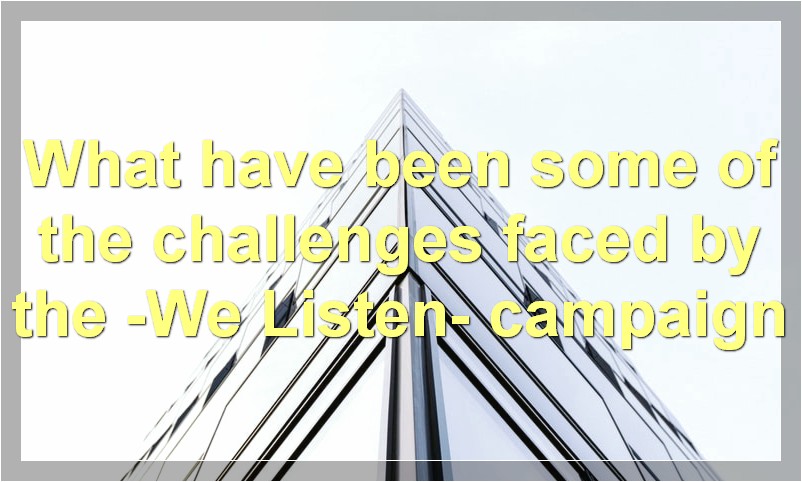The FedEx “We Listen” Campaign is a great way to get your voice heard. FedEx is committed to listening to their customers and making changes that matter to them. This campaign is a great way to make your voice heard and to have a say in what FedEx does.
What inspired FedEx to create their “We Listen” campaign
In order to create an effective communication campaign, FedEx sought the advice of many of their customers. They asked them what they liked and didn’t like about the company and its services. They also found out that customers wanted more than just a company that delivered packages; they wanted a company that listened to their needs and concerns. As a result, FedEx created the “We Listen” campaign.
The “We Listen” campaign was designed to show customers that FedEx was not only listening to their feedback, but also taking action on it. In addition to traditional advertising, FedEx also utilized social media to get the word out. They used Twitter, Facebook, and YouTube to engage with their customers and let them know that their feedback was important to the company.
The “We Listen” campaign was successful in showing customers that FedEx is a company that cares about its customers and is always looking for ways to improve its services.
How has the “We Listen” campaign benefited FedEx
The “We Listen” campaign has been a great success for FedEx. It has helped us to build trust and credibility with our customers, and it has also helped us to improve our customer service. The campaign has helped us to better understand our customers’ needs and expectations, and it has also helped us to improve our communication with them. We have been able to use the feedback we have received from the campaign to make improvements in our operations, and we are continuing to use the feedback to make further improvements. Overall, the “We Listen” campaign has been a great success for FedEx, and we are grateful for the feedback we have received from our customers.
How does the “We Listen” campaign work
The “We Listen” campaign is a joint initiative between the police and the community that encourages people to come forward with information about crime. It is based on the principle that everyone has a role to play in keeping their community safe. The campaign provides a confidential hotline and website where people can anonymously provide information about crime. The information is then passed on to the police who use it to investigate and solve crimes. The campaign has been successful in reducing crime in communities across the country.
Why is listening important to FedEx
Listening is important to FedEx because it allows the company to understand the needs of its customers and employees. By listening, FedEx can learn about the problems that need to be addressed and the areas where improvements can be made. Additionally, listening can help build relationships between the company and its stakeholders. When people feel like they are being listened to, they are more likely to trust and respect the company.
What impact has the “We Listen” campaign had on customers
The We Listen campaign has been very successful in engaging customers and fostering a sense of community. Customers have been sharing their stories and experiences with the company, and they feel heard and valued. This has resulted in increased customer satisfaction and loyalty. Additionally, the campaign has generated positive publicity for the company, which has helped to attract new customers.
What have been some of the challenges faced by the “We Listen” campaign
Since the “We Listen” campaign was launched in early 2020, it has faced a number of challenges. One of the biggest challenges has been getting people to actually listen to the campaign’s message. With so much noise on social media and in the news, it can be difficult to cut through the clutter and get people to pay attention to what you’re saying.
Another challenge has been dealing with negative feedback. The campaign has been accused of being “too political” or of “preaching to the choir.” It’s been tough to stay positive and keep pushing forward in the face of such criticism, but the team behind “We Listen” is determined to make a difference.
Despite the challenges, the “We Listen” campaign has made some progress. It’s managed to start important conversations about race, privilege, and social justice, and it’s helped to raise awareness about the experiences of marginalized groups. There’s still a long way to go, but the “We Listen” campaign is proof that even small steps can lead to big changes.
How has the “We Listen” campaign evolved over time
Since its inception in 2016, the “We Listen” campaign has evolved significantly. Initially created as a response to the Flint water crisis, the campaign has since expanded its focus to include a variety of environmental justice issues. In its early stages, the campaign was largely driven by social media, with volunteers using Twitter and Facebook to reach out to Flint residents and provide them with information about the crisis. The campaign has since grown to include a website and a 24/7 hotline, which provides residents with information and support. The campaign has also partnered with a number of organizations to expand its reach and impact.
What are some success stories from the “We Listen” campaign
The We Listen campaign was started in response to the growing number of police shootings of unarmed black men. The campaign asks people to share their personal experiences with police brutality and racial profiling.
Since its inception, the We Listen campaign has received over 1,000 submissions from people across the United States. These submissions have helped to paint a picture of the systemic problem of police brutality and racial profiling in this country.
One success story from the We Listen campaign is that of Charles Wade. Wade is a civil rights activist who was arrested while protesting the death of Michael Brown. After spending 48 hours in jail, Wade was released without being charged.
While he was in jail, Wade used the time to start a petition calling for the Department of Justice to investigate the Ferguson Police Department. The petition gathered over 100,000 signatures and was instrumental in getting the DOJ to open an investigation into the department.
Wade’s story is just one example of how the We Listen campaign is effecting change by giving a voice to those who have been affected by police brutality and racial profiling.
What advice would you give to other companies considering a similar campaign
There is no one-size-fits-all answer to this question, as the best way to approach a social media campaign depends on the specific goals and objectives of the company. However, here are a few general tips that may be helpful:
1. Define your goals and objectives. What do you hope to achieve through your social media campaign? increased brand awareness? more leads? higher sales? Once you know what you want to accomplish, you can develop a strategy to help you reach your targets.
2. Research your audience. Who are your potential customers or clients? What social media platforms do they use most often? What kind of content are they interested in? By understanding your audience, you can create content and messages that are more likely to resonate with them.
3. Create compelling content. Whether it’s a blog post, video, infographic, or simply a well-written tweet, make sure your content is interesting and engaging. Remember, people are more likely to share something if they believe it will be valuable to others.
4. Promote your campaign. Once you’ve created great content, make sure people see it! Use paid advertising on social media platforms, post about your campaign on your website or blog, and reach out to influencers in your industry to help spread the word.
5. Measure your results. Keep track of the metrics that are important to your campaign, such as website traffic, social media engagement, and leads or sales generated. This will help you determine whether your campaign is successful and where you can improve for future efforts.
What are some lessons learned from the “We Listen” campaign
The “We Listen” campaign was a social media campaign created by the White House in 2011. The campaign encouraged people to share their stories and experiences with the government. Over the course of the campaign, the White House received more than 1,000 submissions.
Some lessons that can be learned from the “We Listen” campaign include the importance of engaging with the public, being open to feedback, and continuously improving government services. The campaign also showed that there is a great demand for more transparency and communication from the government.



